July 25, 2014Comments are closed.council pound
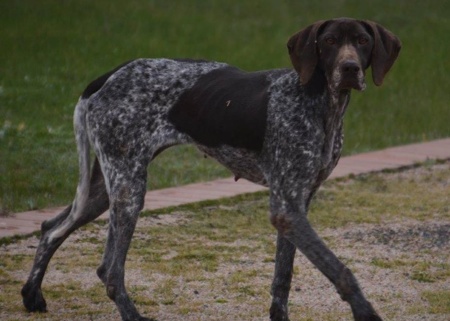
The community of Mitchell (VIC) had a problem. There was a dog who seemed to have been running loose for a long time, currently evading capture. ‘Claudia’ as she would be dubbed, had been living off scraps fed to her by concerned community members who reported her plight to Council.
The dog was very afraid and extremely hard to catch. Mitchell Shire Council took the extra special step of sending in a female ranger (Claudia seemed to dislike men) to try and secure her safety.
 Images – Animals of Mitchell Shire Facebook page
Images – Animals of Mitchell Shire Facebook page
This council did ALL it could and the result is they are now genuine, without a doubt, HEROES!
The now famous Claudia is currently serving her impoundment time, if anyone knows her family.
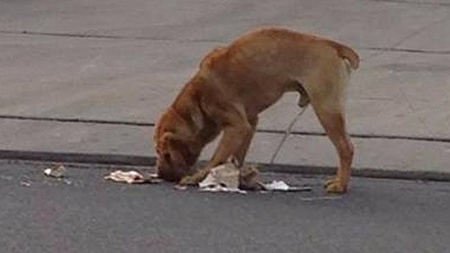
The community of Campbelltown (NSW) had a problem. There was a dog who seemed to have been running loose for a long time, currently evading capture. ‘Cove’ as he would be dubbed, had been living off scraps fed to him by concerned community members. They tried to befriend him unsuccessfully for months, only finally capturing him this week.
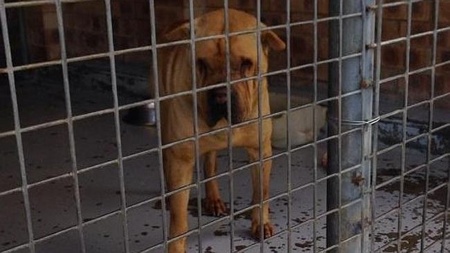
He is currently impounded at Campbelltown Animal Care Facility, where was deemed as possibly aggressive and ‘rescue only’ as he hadn’t had human contact for so long. In order to save him from destruction at the pound and to rehabilitate him after his weeks on the street, the community who love Cove have come together to fundraise for his care. They estimate they need about $8,000 – to date they have raised a little over $3,000.
(Contribute to Cove’s rehabilitation here)
(A video of Cove can be seen here)
This community did ALL it could, and now Cove is getting every opportunity at a second chance. The community are now trying to raise enough funds to secure his safety before his holding period expires.
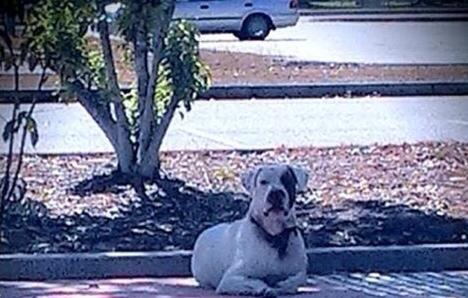
The community of Darwin (NT) had a problem. There was a dog who seemed to have been running loose for a long time, currently evading capture. ‘Boy’ as he would be dubbed, had been living off scraps fed to him by concerned community members.
They tried to befriend him, as he had a collar growing into his neck and needed medical treatment. He was being fed every second day, as animal groups tried to secure him a home and money for his veterinary care.
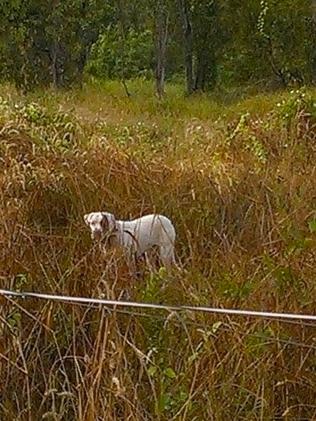
Darwin City Council did ALL it could. That wasn’t to trap him. That wasn’t to sedate him and rush him to a vet. It wasn’t even to consult with the community members who knew the dog to see if a plan could be put in place to expedite his capture.
Nope ALL it could do, was show up on site, call ‘Boy’ over until he was close enough… and then shoot him to death.
Pounds will often claim that the reason pets die in shelters is because ‘irresponsible people’.
In all three of these cases, it could be argued, there was an ‘irresponsible person’ involved. It could also be equally argued that pets get lost sometimes and the reasons pounds exist at all is to fulfil this quite unremarkable need, but let’s just say for argument’s sake, in every single one of these cases an ‘irresponsible person’ in to blame and they dumped these dogs.
– If the reason pets die in shelters is because irresponsible people; why has Mitchell Shire been able to capture the hearts and minds of its local community by building relationships with pet lovers, and inspiring the community with the amazing story of how it saved Claudia? Why is Claudia still alive?
– If the reason pets die in shelters is because irresponsible people; why are the community of Campbelltown now concerned about the plight of Cove. Why did so many people care for his welfare, and why are they now rallying together, giving literally thousands of dollars to secure him a chance at a new life? Why is Cove still alive?
– And even more importantly, if the reason pets die in shelters is because irresponsible people; was Boy’s case unique somehow? Did his story contain more ‘irresponsibility’ than the others? Was his owner more comprehensively ‘irresponsible’ somehow?
The more plausible – more logical – explanation as to the reason these pets did or didn’t die, had nothing to do with their owners after the original ‘irresponsible’ act was completed. As soon as the dogs became wards of the state, everything that happened next was 100% the result of the behaviour of the pound.
– Claudia was saved because the Council made the effort to save her life.
– Cove will be saved because the Council at least isn’t standing in the way of the community in saving his life.
– While Boy was lost because of the Council’s acceptance that killing was an appropriate way to ‘solve’ the issue of a roaming dog.
We get the pound system we’re willing to accept. If you want to stop the killing, if you want your pets to be safe in the ‘system’ – then you need to act.
Find out what is acceptable to your local Council. And if it is unacceptable to you, demand they change.
THANK YOU SO MUCH for this brilliant piece. I will do what I can do right now by sharing this on social media & contributing to Cove’s care via the link above & donating to my local RSPCA branch. I had pledged money for Boy’s care so I might as well put it to good use in some other way. Thank you. There are amazing people & organisations out there & you are one of them.
Interesting contrast in council responses to stray dogs. Darwin Council lack compassion and do not reflect community values. They have no mechanism for consulting the community on matters of companion animal welfare and their decisions are out of touch with community expectations. This is reflected in their decision this week to reduce pound holding times by more than 50% – impounded dogs and cats can now be killed after 4 days rather than 10.
Council needs to establish some sort of community consultation body for their policies on companion animal management. This is the way it works in other Australian shires – Councils make their policies in consultation with local rescue groups, the RSPCA, dog training clubs, wildlife carers and other interested groups. It results in better policies that do not offend community values.
I will be approaching my local council representative about this and suggest others also act. Hopefully Boy’s life might lead to some change for the better. If anyone is interested in working on constructive ways to positively influence Darwin council’s animal management policies, feel free to contact me.
How do humans get the right to shoot and kill an innocent animal needing help? I am deeply upset over the way in which this situation was handled. Gaining an animals trust that is in such need and then shooting it. Evil does walk among us in the form of the human who killed this trusting animal.